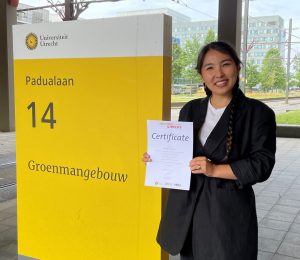
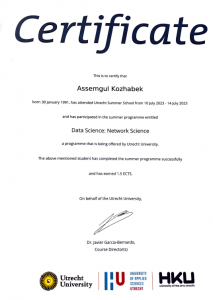
Latest research and knowledge exchange news at Bournemouth University


In May I wrote a BU Research Blog under the title ‘New ways of publishing?’ on the first time we published an academic paper in the post-review journal Qeios. The paper in question ‘The paper ‘Impact of Men’s Labour Migration on Non-migrating Spouses’ Health: A Systematic Review‘ [1] is part of Shraddha Manandhar’s Ph.D. study at the University of Huddersfield. Shraddha is supervised by the University of Huddersfield’s Prof. Philip Brown and Prof. Padam Simkhada and Bournemouth University’ Prof. Edwin van Teijlingen. Today’s blog is an update on that novel publishing journey.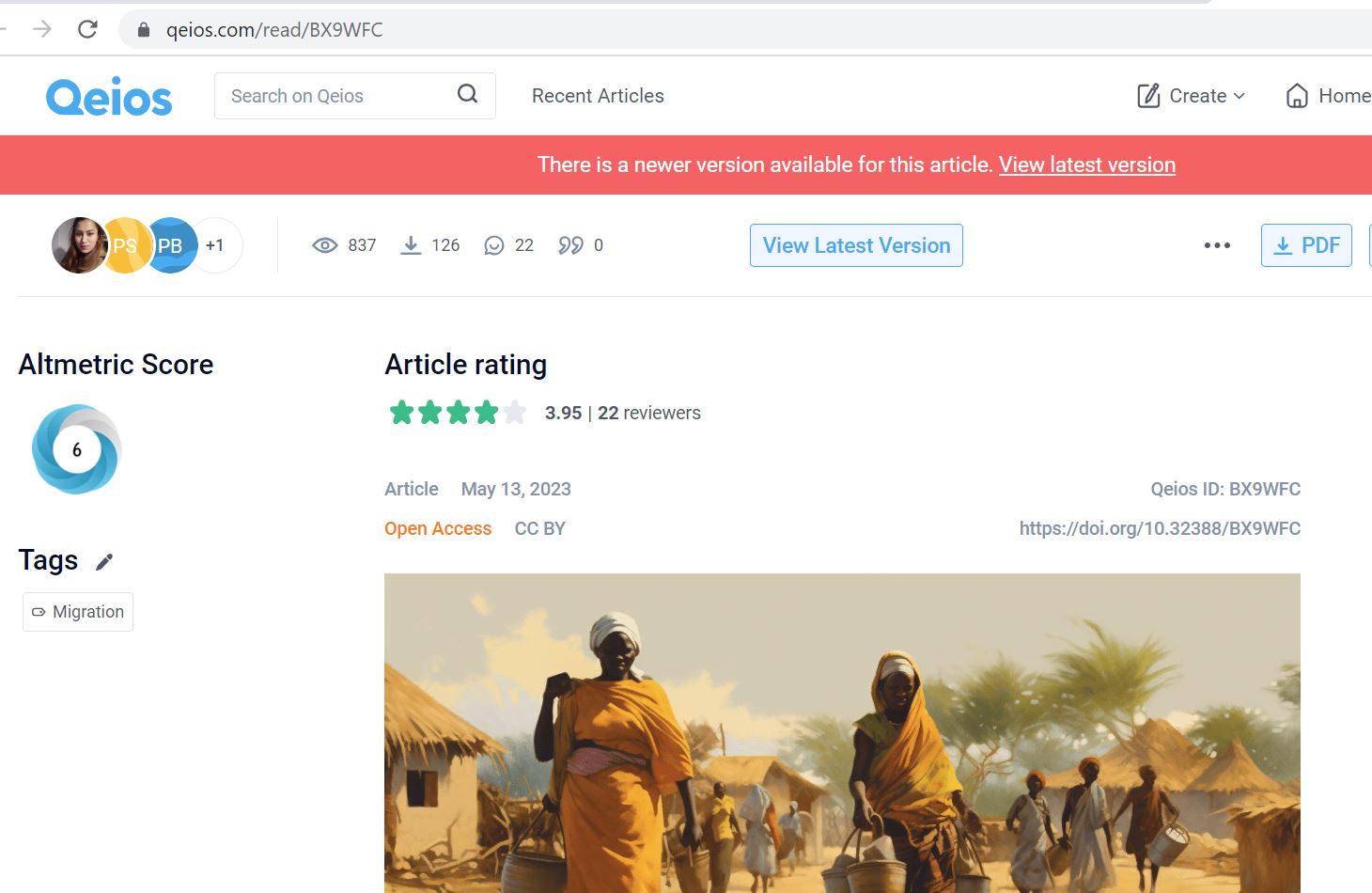
The first point to make is that our paper received twenty-two reviews, not two or three, but 22 different people read and commented on this paper. Sure, some reviews were better than others, some were more insightful, others were more generic, some seem to miss out points, or perhaps skimming the surface a little, but still twenty-two reviews! Secondly, by the nature of post-publication review we have taken the reviews to heart and submitted the second improved version of the paper [2]. The new reference for the paper is very similar to the first one, apart from the new submission data and the indication in the https that we are now on the second version [2]. Thirdly, each of the 22 reviews has its own DOI, and hence can easily be quoted. In the second version of the paper we have cited several of the online reviews [e.g. 3-6]. Last, but not least, Qeois offers Open Access and publishing is free of charge.
The great unknown for us how the academic world is going to view post-publication way of peer-reviewing. We realize that we have been lucky in getting 22 reviews for this paper. As part of learning about Qeios I read a 2022 paper in one of my areas of interest and submitted my own review [7]; this review was only the fifth for the paper.

Prof. Edwin van Teijlingen
Centre for Midwifery & Women’s Health
References:

Technology, Humanity & the Ageing Society
Wednesday 12/7/23 12 noon BST start
https://tinyurl.com/BU-FHSS
We held a conference at highlighting the subject of Violence Against and Women and Girls: Social Justice in Action Conference – Event Date: on 29 June at BGB, Lansdowne.
The Soroptimist International Bournemouth and Bournemouth University led a conference with the focus upon Violence Against Women and Girls. The aim of the day was to raise awareness of issues relating to violence against women and girls, and brought together diverse professionals, NGOs, charities and interested others to share knowledge, explore limitations and seek solutions to sustain social justice. This event was open to all those who are engaged in working with Violence Against Women and Girls and those who care about reducing this global injustice. We have 250 delegates. The feedback we have received has been extremely positive and includes potential partnership working with two local organisations.
“Just a line to express my thanks for such a brilliant and stimulating day on Thursday. It was a privilege to be amongst, and to hear from, experts in many fields. It was clear that a tremendous amount of work and support went into the day by yourselves and others at the University and Bobbie and Elizabeth and no doubt many more. It was a terrific success and I do hope we can build on the day. Thank you again”, In friendship, Christina Rollason UKPAC Secretary
Thank you to Stephen Bates for the following press release which gives a clear picture of the research shared at the event.
Conference seeks social justice to tackle violence against women and girls
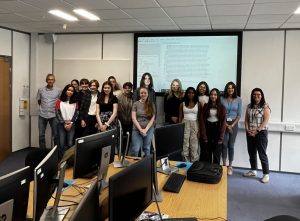 A group of 12 sixth form students from Thomas Hardye School (THS) in Dorchester, an OFSTED outstanding school, visited Talbot Campus this week to take part in a molecular ecology workshop. The workshop was organized by Dr Demetra Andreou (dandreou@bournemouth.ac.uk) and Prof Genoveva Esteban (gesteban@bournemouth.ac.uk) from SciTech’s Department of Life and Environmental Sciences, in collaboration with Dr John Davy-Bowker (BU Visiting Fellow) and Dr Gloria Tapia from the River Laboratory (East Stoke, Wareham). The workshop is part of an ongoing Fusion project with Thomas Hardye School, funded by Rolls-Royce, that investigates invasive freshwater shrimps in Dorset. Prior to visiting BU, the sixth-form students collected river samples at the River Laboratory, isolated and identified the freshwater shrimps, and isolated the shrimps’ DNA, which was then sequenced. During the workshop, the students learned bioinformatics, handled the DNA sequences, and developed phylogenetic trees to investigate the potential origin of the invasive shrimps. The students will present their final findings at a symposium that will take place at Thomas Hardye School in the Autumn. Simon Lewis, Science teacher at THS and Leader of the Roll-Royce project, said: “The tour of your buildings and labs was very impressive and I know will have given the students a different perspective on what a science lab looks like and how different they are from a school environment. Meeting you both also really promotes the idea of Science as a future for them, meeting people they can relate to is so important and you gave such a positive idea of what science entails.“
A group of 12 sixth form students from Thomas Hardye School (THS) in Dorchester, an OFSTED outstanding school, visited Talbot Campus this week to take part in a molecular ecology workshop. The workshop was organized by Dr Demetra Andreou (dandreou@bournemouth.ac.uk) and Prof Genoveva Esteban (gesteban@bournemouth.ac.uk) from SciTech’s Department of Life and Environmental Sciences, in collaboration with Dr John Davy-Bowker (BU Visiting Fellow) and Dr Gloria Tapia from the River Laboratory (East Stoke, Wareham). The workshop is part of an ongoing Fusion project with Thomas Hardye School, funded by Rolls-Royce, that investigates invasive freshwater shrimps in Dorset. Prior to visiting BU, the sixth-form students collected river samples at the River Laboratory, isolated and identified the freshwater shrimps, and isolated the shrimps’ DNA, which was then sequenced. During the workshop, the students learned bioinformatics, handled the DNA sequences, and developed phylogenetic trees to investigate the potential origin of the invasive shrimps. The students will present their final findings at a symposium that will take place at Thomas Hardye School in the Autumn. Simon Lewis, Science teacher at THS and Leader of the Roll-Royce project, said: “The tour of your buildings and labs was very impressive and I know will have given the students a different perspective on what a science lab looks like and how different they are from a school environment. Meeting you both also really promotes the idea of Science as a future for them, meeting people they can relate to is so important and you gave such a positive idea of what science entails.“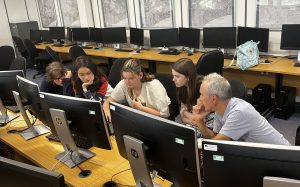
The E-Drone research project has developed a board game that plans delivery drone missions. This helps people explore the implications of using drones for deliveries. You do not need to have any prior knowledge of delivery drones to play the game as it designed for a general audience.
We are looking for 4-6 participants to test a new version of the game on Talbot Campus on Monday 10th July at 2pm. We will need 90 minutes of your time and will recompense this time with £15 in shopping vouchers.
If you would like to take part please contact Janet Dickinson (jdickinson@bournemouth.ac.uk) to book your slot. If you are interested, but not available on 10th July, please get in touch as we are likely to arrange another slot at a later date.
From September the MRC are introducing a new policy that will require researchers to consider diversity when designing clinical and preclinical scientific experiments. They will become the first funder to require diversity to be considered. The changes are to ensure that research is relevant and beneficial to everyone in society. It will be effective for all funding applications submitted after 1st September 2023.
Researchers will need to consider characteristics such as gender, age, ethnicity and whether someone’s socio-economic status is relevant when applying for MRC funding.
This builds on the requirement introduced in March 2022 that all applications involving animal or in vitro research should include both sexes.
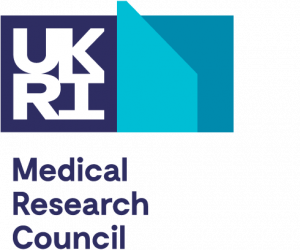 Further guidance for applicants and peer reviewers will follow.
Further guidance for applicants and peer reviewers will follow.
 Late last week my colleague Dr. Pramod Regmi, Senior Lecturer in International Health, returned home from his Erasmus+ exchange to Nepal. He brought home for me a copy of the MMIHS (Manmohan Memorial Institute of Health Sciences) Souvenir 2023, this outliens key events at the institution of the past year. One of the write ups in the Souvenir is from the seven MMIHS M.Sc. students in Public Health who visited Bournemouth University in late 2022-early 2023 for three months.
Late last week my colleague Dr. Pramod Regmi, Senior Lecturer in International Health, returned home from his Erasmus+ exchange to Nepal. He brought home for me a copy of the MMIHS (Manmohan Memorial Institute of Health Sciences) Souvenir 2023, this outliens key events at the institution of the past year. One of the write ups in the Souvenir is from the seven MMIHS M.Sc. students in Public Health who visited Bournemouth University in late 2022-early 2023 for three months. 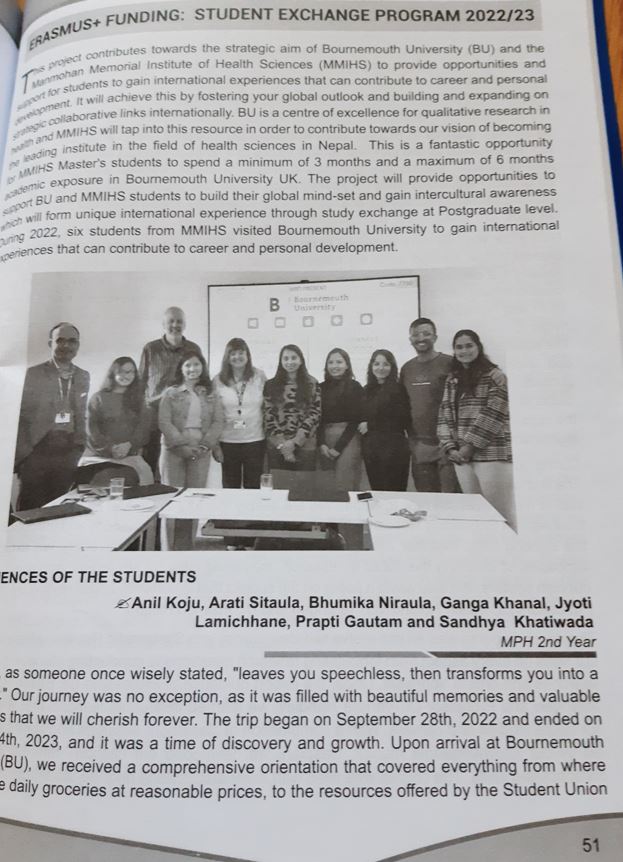 The students have since all completed their M.Sc. in Public Health at MMIHS. Their story highlights some of the British features of student life which were new to them. These included the support they received from our SUBU (=students’ union), or registering with the NHS, and the UNIBUS app, as well as cultural celebrations during their time in Dorset, such Halloween, Christmas and New Year. They rave about the module Public Involvement in Research and specifically thank Dr. Mel Hughes and BU’s PIER (Public Involvement in Education & Research) team. Their second module at BU focused on Systematic Reviewing, they particularly mention the guidance and support received from Prof. Vanora Hundley in the Centre for Midwifery & Women’s Health (CMWH) and our Faculty of Health & Social Sciences librarian Mr. Caspian Dugdale.
The students have since all completed their M.Sc. in Public Health at MMIHS. Their story highlights some of the British features of student life which were new to them. These included the support they received from our SUBU (=students’ union), or registering with the NHS, and the UNIBUS app, as well as cultural celebrations during their time in Dorset, such Halloween, Christmas and New Year. They rave about the module Public Involvement in Research and specifically thank Dr. Mel Hughes and BU’s PIER (Public Involvement in Education & Research) team. Their second module at BU focused on Systematic Reviewing, they particularly mention the guidance and support received from Prof. Vanora Hundley in the Centre for Midwifery & Women’s Health (CMWH) and our Faculty of Health & Social Sciences librarian Mr. Caspian Dugdale.
Unfortunately, the Erasmus+ scheme has come to an end, but Bournemouth University has just been awarded funding for a serious number of Turing Scheme exchanges. The latter is for BU students to go aboard, and this funding supports study exchanges, work placements, voluntary traineeships and other international extra-curricular or curricular activities worldwide for a minimum of 28 days and maximum of 12 months.
Prof. Edwin van Teijlingen
CMWH
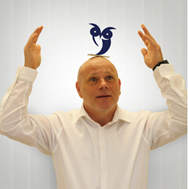
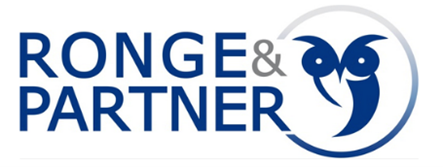
For the past month BU researchers from the EU funded research project FoodMAPP have been hosting their first secondee Andreas Purin from Ronge & Partner, Austria. FoodMAPP – an MSCA Staff Exchange project – involves organisations from the academic and non-academic sectors working together through international, inter-sectoral and interdisciplinary mobility (secondments) on the implementation of a specific project. FoodMAPP is developing a searchable map-based platform to enable consumers to find and buy local food supplies, so reducing food waste and supporting sustainable purchases.
Andreas Purin started his secondment with a presentation to members of the research team, Centre for Sustainable & Socially Responsible Consumption members, and the Consumer Insights Research Theme in BUBS that introduced both himself and Ronge & Partner where he is currently a Senior Consultant. Highlights of this included discussion of his bachelor’s thesis which focused on the product development and production of fresh convenience meals, within the context of sustainability, from both the consumer’s perspective, and the perspective of experts. The relevance of this was shown through Andreas’ career as he went on to establish a food production line for convenience meals in a large food retail company and served as its managing director for almost twenty years. Additionally, Andreas talked through his career path that included being a trained chef and working in top gastronomy roles.
During his secondment Andreas not only worked on FoodMAPP developing project communications and providing the industry perspective, but networked and shared knowledge with many members of BUBS. In his downtime he enjoyed exploring the Dorset coastline and the New Forest, taking part in activities such as paddle-boarding, tennis and pedal car racing, as well as sampling the local food and drink.
BU will host its second secondee from the FoodMAPP project – Dr Maxime Michaud, Institut Paul Bocuse, France – in early July 2023.
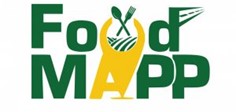
FoodMAPP in the UK is led by Associate Professor Jeff Bray and supported by an interdisciplinary research team from across the university including Professor Katherine Appleton, Professor Juliet Memery, Dr Roberta Discetti, Dr Suellen Carls and Dr Vegard Engen.

Have you been unsuccessful with a grant application and don’t know what to do next? Don’t give up!!
This session will cover best practice for repurposing unsuccessful applications for external funding.
Beginning from the research itself and how to reshape it, the session will then cover the predominant differences between the UK funders and the types of schemes they offer.
The value of feedback – from the funder or from peers will be discussed. Participants will be asked to select a potential new funder or scheme for their unsuccessful application and develop a pitch for a revised application.
Outcomes:
Repurposing Your Unsuccessful Grant Applications
To book a place on this workshop, please complete the Booking Form
For any specific queries regarding this Workshop please contact Research Facilitators: Kate Percival kpercival@bournemouth.ac.uk, Zarak Afzal zafzal@bournemouth.ac.uk, Ainar Blaudums ablaudums@bournemouth.ac.uk , Eva Papadopoulou epapadopoulou@bournemouth.ac.uk,
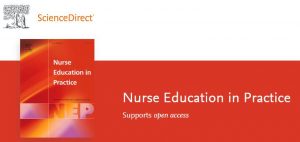 Congratulations to Megan Jadzinski, Sara White, Sue Way and Dominique Mylod on the acceptance of their paper ‘How are Fitness to Practise processes applied in UK Higher Education Institutions? – A systematic review’ by the international journal Nurse Education in Practice. All authors are based in the Faculty of Health and Social Science, or were as Prof. Sue Way retired recently.
Congratulations to Megan Jadzinski, Sara White, Sue Way and Dominique Mylod on the acceptance of their paper ‘How are Fitness to Practise processes applied in UK Higher Education Institutions? – A systematic review’ by the international journal Nurse Education in Practice. All authors are based in the Faculty of Health and Social Science, or were as Prof. Sue Way retired recently.
Well done,
Prof. Edwin van Teijlingen
Centre for Midwifery & Women’s Health
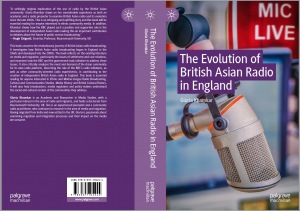
Are you curious about the origins of British Asian radio broadcasting in England? Look no further than the ground-breaking book, The Evolution of British Asian Radio in England, written by the BU FMC academic Dr. Gloria Khamkar. Published by Palgrave Macmillan, this book is based on Dr. Khamkar’s pioneering doctoral research conducted at Bournemouth University.
The Evolution of British Asian Radio in England unveils the captivating story of British Asian radio broadcasting that will leave you enthralled. Delving into the 1960s through the 2000s, it explores the emergence and growth of British Asian radio broadcasting. You’ll discover the intertwined themes of migration, integration, race relations, and media representation, alongside the initiatives undertaken by the BBC and the UK government to address these issues. The book critically examines the necessity and demand for a dedicated radio platform within the British Asian communities. This book is a must-read for those interested in ethnic minority and mother-tongue radio broadcasting, cultural and communication studies, media history, and British cultural history. Moreover, it provides invaluable insights to broadcasters, media regulators, and policymakers, enabling them to grasp the social and cultural landscape of the communities they engage within today’s world.
This work does not only have a research value, but also a much deeper personal connection and meaning to Dr Khamkar. She states, “This work is the result of my honest and ongoing quest to understand the migration process and its impact on our lives, including all the ways it changed the media landscape. I have been volunteering as a British Asian radio presenter and producer at Southampton’s Asian radio station Unity101.1FM since August 2010. I host a weekly live radio show Suhaana Safar (meaning ‘A Beautiful Journey’) and have briefly served as a Deputy Station Manager. During my time at this radio station, I have been exposed to a real setup of a British Asian community radio station, solely catering to the British Asian community in Southampton and surrounding areas. Regular interaction with the station’s listeners, volunteers, presenters, and the manager has shaped my thought process and helped me develop a rigorous understanding of community broadcasting. Such a radio station helps its community in terms of education, information, entertainment and is, thereby, empowering. It has strengthened my judgment that there was, and still is, a need for radio services for the British Asian community living in England. This is my analysis based on first-hand research. I hope it helps you learn more about the historical movement and the earnest campaign behind what we see as a successful independent British Asian radio broadcasting in England today.”
Immerse yourself in the fascinating journey of British Asian radio and gain a deeper understanding of its impact and significance.
Dr. Gloria Khamkar is a distinguished academic and accomplished researcher specialising in Media Studies, with a specific focus on radio and migrant communities. Holding a doctorate from Bournemouth University, she brings extensive expertise to her work. With a background as both a seasoned journalist and a community radio practitioner, Dr. Khamkar maintains a constant commitment to exploring the dynamic relationship between media and migration. Having personally experienced migration from India and establishing herself in the UK, her passion lies in comprehensively examining the intricate processes of migration and integration. She is particularly interested in understanding their profound influence on the media landscape and the content we consume. Dr. Khamkar’s profound insights and unique perspective make her an invaluable contributor to the field of Media Studies. Her continued research in media and migration showcases her unwavering dedication to advancing knowledge and fostering a deeper understanding of these critical subjects.
If you are interested in knowing more about Dr Khamkar’s fusion work, please check this link and you can also get in touch with her at gkhamkar@bournemouth.ac.uk.
The ThinkProductive Team will be visiting BU next Thursday to deliver a practical, interactive and fun 2 hour online workshop and there’re spaces still available.
They will share with us how to utilize the mindset and tactics of the 9 Characteristics of the Productivity Ninja.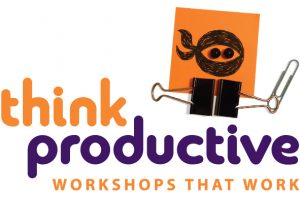
Are you battling information overload? Email deluge? Wrestling with procrastination, interruption or distraction? Constantly feel like you are in reactive, “juggling” and “plate spinning” mode? Find it hard to maintain energy and focus, to properly unplug and switch off, or to make space for what really matters – or for yourself?
If any of that sounds familiar, we’ve got you some information here!
Thursday 29th June 2023, from 1:00pm to 3:00pm
To book a place on “The Way of the Productivity Ninja” workshop please complete the Booking Form
by Dr. Miguel Moital, Principal Academic in Events Management, Department of Sport & Events Management, BUBS
On Friday I was an external examiner for a PhD at the University of São Paulo (USP), Brazil. The thesis was entitled “Heuristics and biases in the mental estimation of the share of segments of the public in tourism”, with the study framed within the behavioural economics area. The thesis was supervised by Dr. Glauber Santos (USP) and Verônica Feder Mayer (UFF – Fluminense Federal University). Other examiners included Marlusa Gosling (UFMG – Federal University of Minas Gerais), Osiris Marques (UFF) and Otávio Freire (USP).
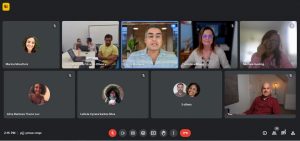
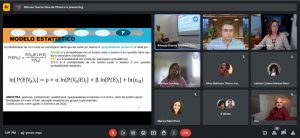
The PhD candidate Rômulo Duarte was approved by unanimity, and rightly so. This was one of the best thesis I have examined. It was short and straight to the point, at 150 pages from introduction to conclusion. Or as one of the other examiners said “there is no fat”. It included a strong theoretical foundation and adopted a quasi-experimental approach, containing 6 different studies which worked together well to answer the aim. Experimental approaches are not common in the tourism literature, hence it is great to see more studies using this method. From reading the thesis it is clear that Rômulo has an exceptional ability to explain well complex ideas, alternative approaches, dilemmas, limitations and possible solutions. He also expertly answered my questions, as well as those from the other examiners.
On a more personal note, it was good to see that my contributions to the development of the Brazilian tourism research were acknowledged. I have been fairly active in my interaction with Brazilian tourism academia since 2008, having been guest speaker at conferences and guest sessions many times. The latest one was in 2019, where I was a guest speaker at the opening sessions of the PhD Programme in tourism at USP, the programme that Rômulo graduates from.
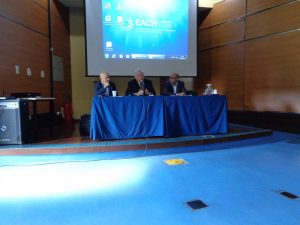
One of the weaknesses of Brazilian tourism research is its over-focus on the context elements, at the expense of theory. My presentation in 2019 was all about the need to prioritise the theoretical element, and to make my point I used examples of journal article titles, comparing those from Brazilian tourism journals against those from top international tourism journals. During the viva I highlighted the fact that the thesis title was unlike the traditional structure, which starts with the content and then highlights the theory element. In Rômulo’s case it was short and concise, emphasising the theoretical elements at the expense of the context elements.
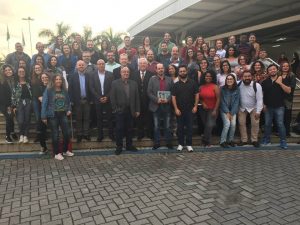
Prof. Glauber Santos clarified that such focus was a legacy of my work over the years, including the 2019 session, with Rômulo commenting that after he attended that session he kept this message as a focal point for this research, including in the construction of the title.
I would like to publicly congratulate Dr Rômulo Duarte, as well as his supervisors Glauber and Verônica and the Tourism PhD Programme at USP. Tourism academia is now just a little bit stronger with the addition of another skilled researcher.
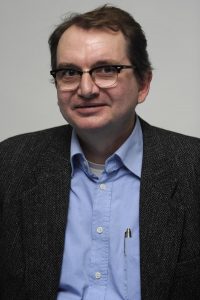 Professor Jens Hölscher has been invited to participate in an international doctoral summer school supported by EU funds and universities in Estonia. He will present a paper ‘Successes and Failures of Economic Transition’ and comment on presentations given by participating PhD students. He has published a graduate textbook and many scholarly articles in this research area.
Professor Jens Hölscher has been invited to participate in an international doctoral summer school supported by EU funds and universities in Estonia. He will present a paper ‘Successes and Failures of Economic Transition’ and comment on presentations given by participating PhD students. He has published a graduate textbook and many scholarly articles in this research area.
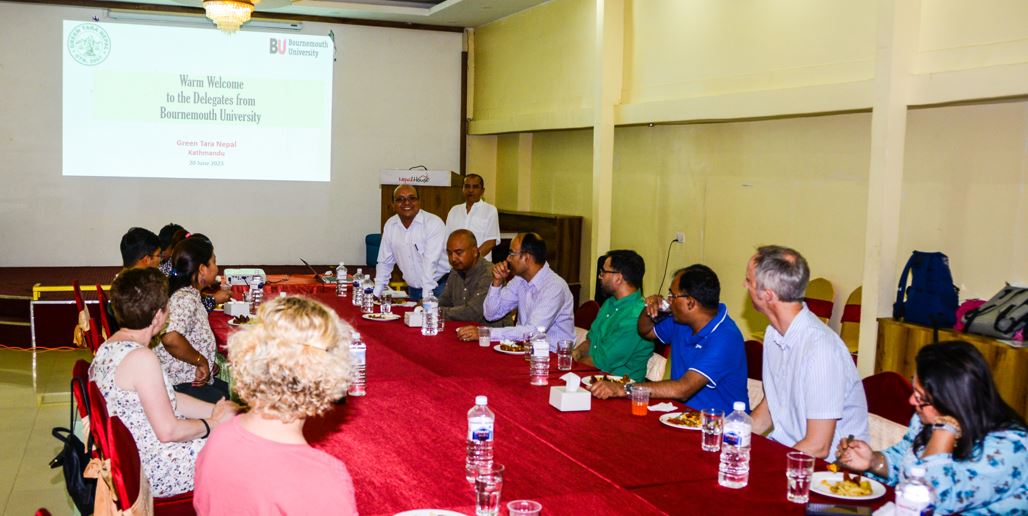 A team of academics from Bournemouth University (BU) on the Erasmus+ exchange met with the Non-Governmental Organisation (NGO) Green Tara Nepal (GTN) in Kathmandu this week. BU has been collaborating with Green Tara Nepal for nearly 15 years. GTN is non-profit making charity, established in 2007, which focuses on research, publications, advocacy, training and social mobilization in a holistic community development approach. GTN works closely among the individuals and groups through health promotion using participatory and community development approaches. Over the years various BU academics have conducted many research projects with the support of GTN in Nepal, organised dissemination events and conferences, wrote grant applications, published papers, and so so.
A team of academics from Bournemouth University (BU) on the Erasmus+ exchange met with the Non-Governmental Organisation (NGO) Green Tara Nepal (GTN) in Kathmandu this week. BU has been collaborating with Green Tara Nepal for nearly 15 years. GTN is non-profit making charity, established in 2007, which focuses on research, publications, advocacy, training and social mobilization in a holistic community development approach. GTN works closely among the individuals and groups through health promotion using participatory and community development approaches. Over the years various BU academics have conducted many research projects with the support of GTN in Nepal, organised dissemination events and conferences, wrote grant applications, published papers, and so so. 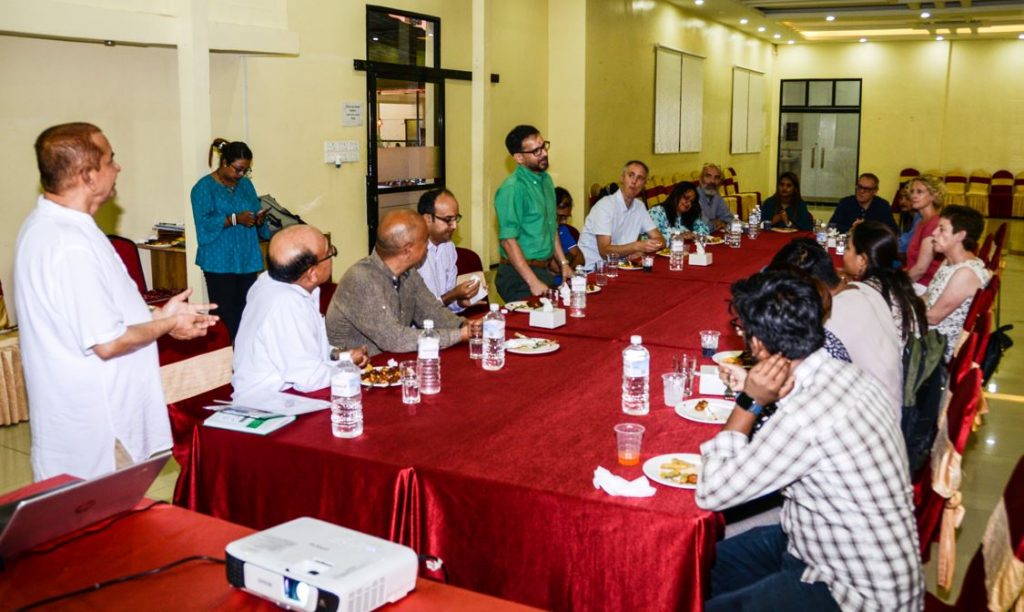
The BU Erasmus+ visitors included FHSS academics Prof. Steve Ersser, Dr. Michele Board and Dr. Pramod Regmi, as well as the Head of BU International Partnerships Dr. Alistair Morrison and Global Engagement Officer Elaine Hakes, and from the department of Psychology Dr. Shanti Shanker, and last, but not least, FHSS Ph.D. student Yagya Adhikari.
I would personally like to say thank you very much for all the support I have received from GTN over the past two decades!
Prof. Edwin van Teijlingen
Centre for Midwifery & Women’s Health (CMWH)
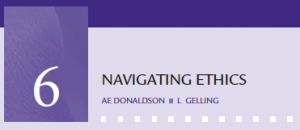
Earlier this month Elsevier published the 6th Edition of ‘Navigating the Research Maze: enhancing nursing and midwifery practice‘. Edited by Debra Jackson, Tamara Power and Helen Walthall, this book seeks to demystify some of the complexities in planning, conducting and reading research and draws on a wide range of research leaders from around the world as authors. This book could be a useful addition to reading lists for students undertaking units focusing on research and evidence-based practice.
It was a pleasure to work on Chapter 6 (Navigating Ethics) with Andrea Donaldson from Massey University in New Zealand. It was interesting to learn how research ethics is managed differently in different parts of the world but also reassuring to confirm that the underpinning ethical principles are the same wherever research is conducted.
Sometimes it can be hard to see how new editions of books have changed but in developing this edition efforts have been made to add useful resources for both students and lecturers. Readers can access student challenges, quizzes, resource kits, Powerpoint slides, a test bank and teaching tips for each chapter.
A chance to showcase your Research
Dear all,
We are holding a conference at BU: Violence Against and Women and Girls: Social Justice in Action Conference – Event Date: 29 June at BGB, Lansdowne.
The Soroptimist International Bournemouth and Bournemouth University are facilitating a conference with the focus upon Violence Against Women and Girls. The aim of the day is to raise awareness of issues relating to violence against women and girls, bringing together diverse professionals, NGOs, charities and interested others to share knowledge, explore limitations and seek solutions to sustain social justice. This event is open to all those who are engaged in working with Violence Against Women and Girls and those who care about reducing this global injustice.
At the event in the lunch room we will be running an automated PowerPoint presentation, where we hope to showcase BU research that is relevant to the professional audience.
This is open to all BU academics and PGRs – and all you need is for your research to be relevant to the intended audience it does not have to be focused on the main conference topic.
If you would like to showcase your work to this audience, please send a PowerPoint slide to Orlanda Harvey by 26th June 2023.
Please do pass this opportunity on to colleagues across the University